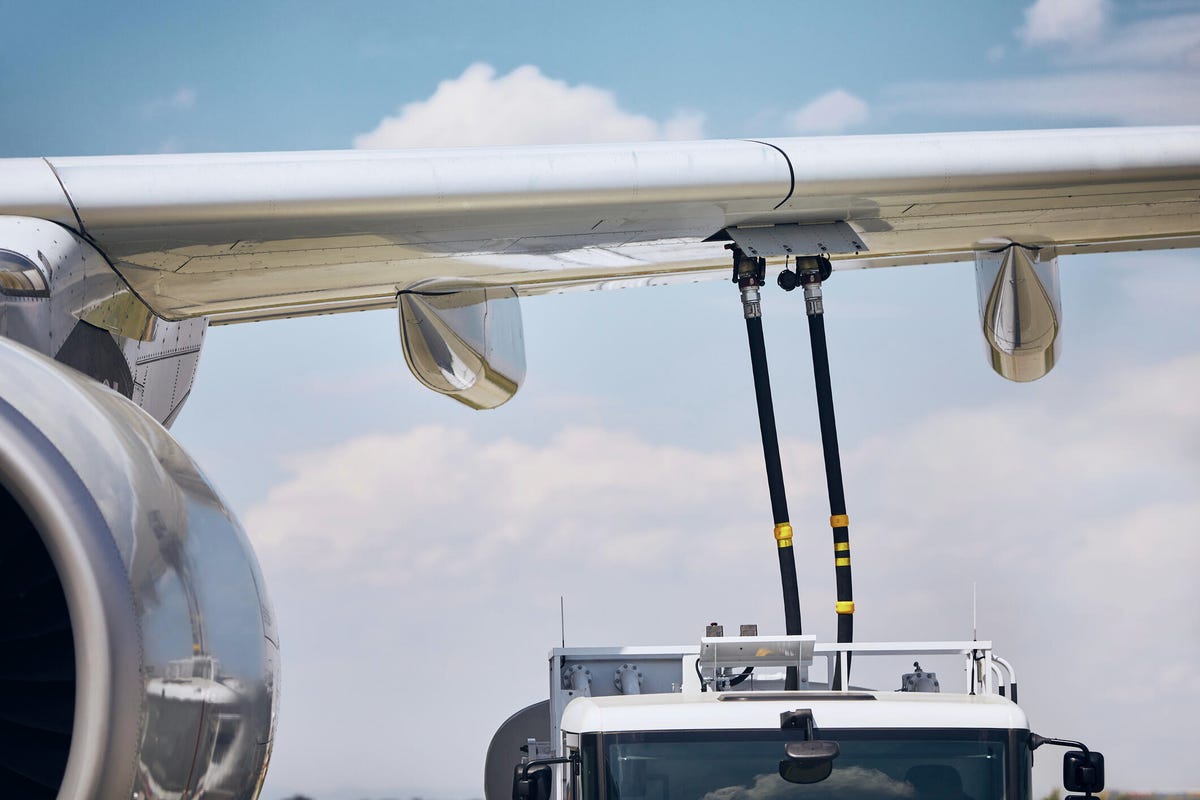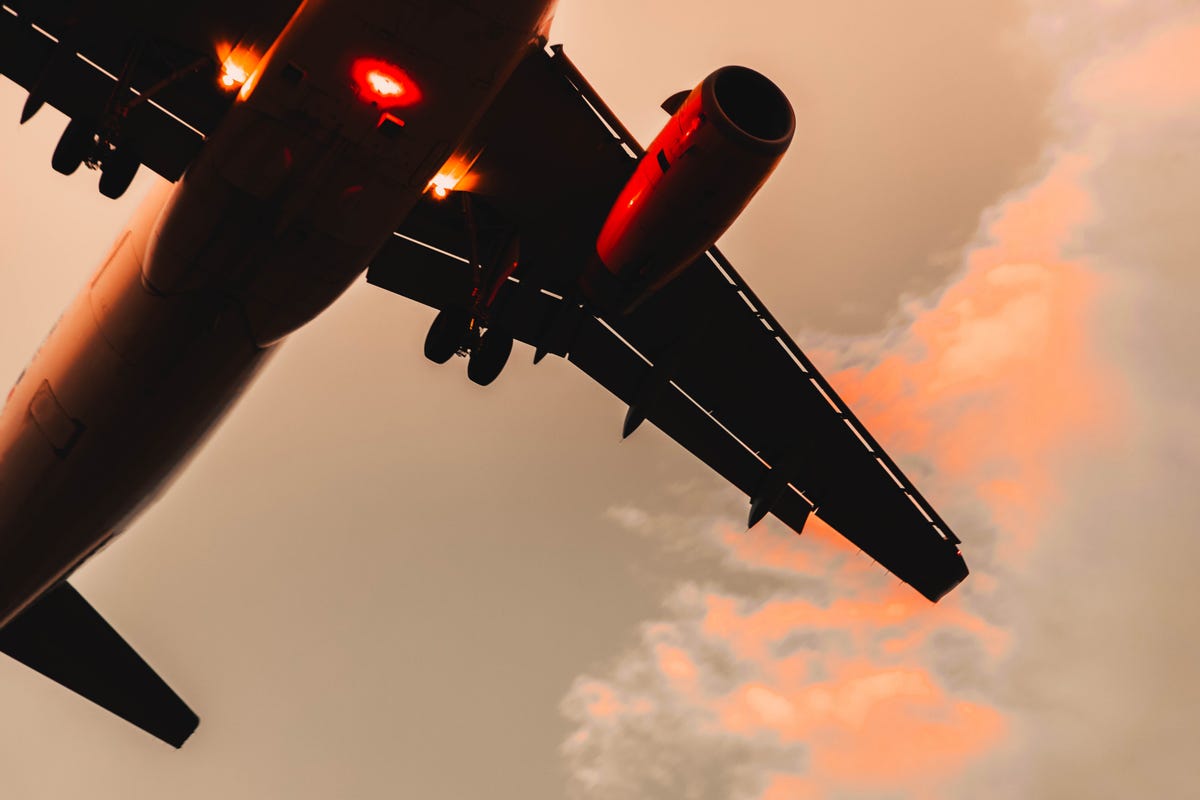Airlines canceled and delayed thousands of flights over the weekend, and that trend is continuing into the week: More than 950 US flights were canceled as of 1:50 p.m. PT Wednesday, according to FlightAware.
After two years of pandemic layoffs and buyouts, there’s an acute shortage of air industry workers — most notably pilots and flight crews.
Airlines are “having trouble matching supply and demand,” said David Slotnick, senior airline business reporter for CNET’s sister site The Points Guy. “They’re trying to guess what demand is going to mean, while still leaving slack in case of emergency.”
Find out what’s causing all the canceled flights, what the airlines are doing about it, and how you can save yourself a lot of trouble if your flight gets nixed.
Why have there been so many delays and cancellations?
The biggest factor affecting cancellations is that airlines are incredibly short-staffed. When the pandemic slowed air travel to a trickle, many carriers bought out employees’ contracts and encouraged older pilots to take early retirement.
As a result, from December 2019 to December 2020, the number of airline workers shrunk by at least 114,000, according to the Bureau of Labor Statistics. Now carriers are clamoring to staff back up, but they’re finding it hard to fill positions.
The shortages extend to ground staff, baggage handlers, gate personnel and other workers, FlightAware spokesperson Kathleen Bangs told CNET. “They did a lot of buyouts during the pandemic. It’s a remarkable growth period and they’re just back-footed.”
It’s particularly acute with pilots because it can take up to five years and cost hundreds of thousands of dollars to train someone to fly a commercial airplane.
“Most airlines are simply not going to be able to realize their capacity plans because there simply aren’t enough pilots, at least not for the next five-plus years,” United Airlines CEO Scott Kirby said during a quarterly earnings call back in April, NBC News reported
Delta said it has canceled 100 scheduled daily flights in the US and Latin America between July 1 and Aug. 7. Southwest Airlines has nixed almost 20,000 summer flights.
The cost of jet fuel has soared
A shortage of jet fuel has also led to cancellations and delays. Refinery shutdowns mean more than a million barrels a day, or about 5% of the total US aviation fuel capacity, has been lost since the beginning of the pandemic, Bloomberg reported, with no concrete plans to bring capacity back up.

Aviation fuel costs have hit record highs.
Jaromir Chalabala/Getty Images
The supply shortage has seen the price of aviation fuel hit all-time highs: According to the Department of Transportation’s Bureau of Transportation Statistics, jet fuel costs reached $4.82 billion in April 2022, up more than 15% from March and a whopping 58% from April 2019.
For domestic flights, the agency said, the cost per gallon has shot up 103% from April 2021.
How to avoid having your flight canceled
There isn’t much you can do to prevent a delay or cancellation. But there are some common-sense steps that will give you a better shot at making it to your destination — or at least relaxing at home or in a hotel room, rather than stewing in the airport.

Download your airline’s mobile app to keep on top of changes to your flight schedule.
Pavlo Gonchar/Getty Images
Download the airline’s app on your phone. Opt into flight notifications and start manually checking the status of your flight regularly, at least 24 hours in advance. As soon as you hear your flight has been cut, find out if you’ve been transferred to another flight.
Monitor the weather at both your departure and arrival airports. Start checking the weather in both places a few days before your flight. Some airlines will actually reschedule your flight in advance of a major weather front at no extra charge.
If a storm is on its way, you might consider leaving a few days earlier or later or finding a different route.
Buy travel insurance. Depending on why your flight is canceled or delayed, the airline might not comp any meals, accommodations or transport you’re forced to purchase. The payout for travel insurance may not cover all of your expenses, but it will definitely be more than the cost of a policy, typically 5% to 10% of your trip cost.
What to do if your flight is delayed or canceled
Time is of the essence, so be proactive about rescheduling your flight.
“A lot of the time you can reschedule yourself on the flight of your choice” using the airline’s app, Slotnick said. “It’ll save you a lot of time and aggravation.”
If that’s not possible, call the airline. Even if you get sent to an automated system, it may have a call-back function. You can still call if you’re already at the airport. Do it while you’re in line to talk to an agent and take whichever option is available first.
What does the airline owe you if your flight is canceled?
In the US, if a flight is delayed or canceled, the airline is responsible for getting you to your destination. But that could be much later than your original flight.
If the cancellation is the airline’s fault — like because of mechanical issues or a staffing shortage — the airline is required to provide vouchers for meals and hotels. Make your plans quickly, though: Airport hotels fill up quickly amid widespread delays and cancellations.
Some airlines will work to get you on another flight with a different airline, Slotkin said, but not every airline has relationships with other carriers.
The US Department of Transportation mandates that airlines must refund the cost of your ticket after a cancellation, schedule change or significant delay. But the agency hasn’t defined what constitutes a “significant delay.”
“Whether you are entitled to a refund depends on many factors — including the length of the delay, the length of the flight and your particular circumstances,” according to the DOT website.
It determines whether a refund following a significant delay is warranted “on a case-by-case basis.”
What are airlines doing to address delays and cancellations?
Hiring more employees. “All the airlines are doing major hiring initiatives,” Slotnick said. “They’re rushing to hire pilots and deploy them.” They’re also trying to improve work conditions for existing workers: Earlier this month, Delta announced it would start paying flight attendants during boarding, rather than just once the plane door closes.
The move, a first for a major US airline, is seen as a countermeasure to a unionization push among workers.
Scheduling more flights. Some airlines are boosting service in popular corridors when they can. “They’re trying to strike the right balance between adding flights and creating some slack in the system,” Slotnick said.
For example, United Airlines recently launched or resumed 30 flights between the US and Europe, its largest expansion ever. Regular flights from Denver to Munich, Chicago to Zurich and New York to Bergen, Norway, are underway, as well as daily service between Boston and London.
When fully operational, United’s transatlantic route network will be more than 25% larger than it was in 2019, before COVID-19 cratered air travel.

United is boosting the number of flights to Europe, while JetBlue and Southwest are trimming capacity to address staff shortfalls.
Artur Debat/Getty Images
Scheduling fewer flights. Other airlines are going in the opposite direction, reducing their capacity rather than risk being forced to cancel a scheduled flight. JetBlue has already reduced its May routes by almost 10%, Conde Nast Traveler reported, and will likely make similar cuts throughout the summer.
“By reducing our flight schedule for the summer and continuing to hire new crewmembers, we hope to have more breathing room in the system to help ease some of the recent delays and cancellations that we’ve seen in the industry,” a JetBlue spokesperson told the outlet.
Southwest Airlines, the world’s largest low-cost carrier, is cutting more than 8,000 domestic flights in June “to adjust to capacity,” the company told The Business Journals.
Alaska Airlines said in a statement that it’s reducing the number of flights through the end of June by about 2% “to match our current pilot capacity.”
Giving passengers more notice. All the airlines are making a concerted effort to give passengers as much information as possible, Slotkin said, through text updates and other notifications.
“Even a year before the pandemic, airlines were trying to be proactive about informing passengers, even 24 or 48 hours in advance of a possible cancellation,” he said.
Are any airlines better or worse in terms of cancellations?
Without naming names, Slotnick says that, broadly speaking, low-cost airlines have tighter margins with less slack, so theoretically you’re more likely to face a cancellation.

In 2021, Delta had the fewest cancellations of any major US airline.
Boarding1Now
But booking with a big carrier doesn’t mean you’re immune.
“The regionals have parked a lot of planes because they don’t have enough staff,” Bangs said. “And a lot of people who book on a major airline don’t realize they’re actually flying with a smaller carrier.”
SkyWest, a smaller airline out of St. George, Utah, subcontracts for Delta, United, American and Alaska Airlines. So does Indiana-based Republic Airways.
Sometimes, bigger is indeed better: Last year, Delta had the best record in cancellation rates, according to The Wall Street Journal’s annual airline rankings. The Atlanta-based airline scrubbed 0.6% of its scheduled departures in 2021, a third of the industry average of 1.8%.





More Stories
Foam Jacking vs Mud Jacking, Concrete Raising Systems
A Sensitively Built Coastal Garden, Designed To Look ‘Untouched’
Step inside this stunning transitional style house in Saratoga Springs